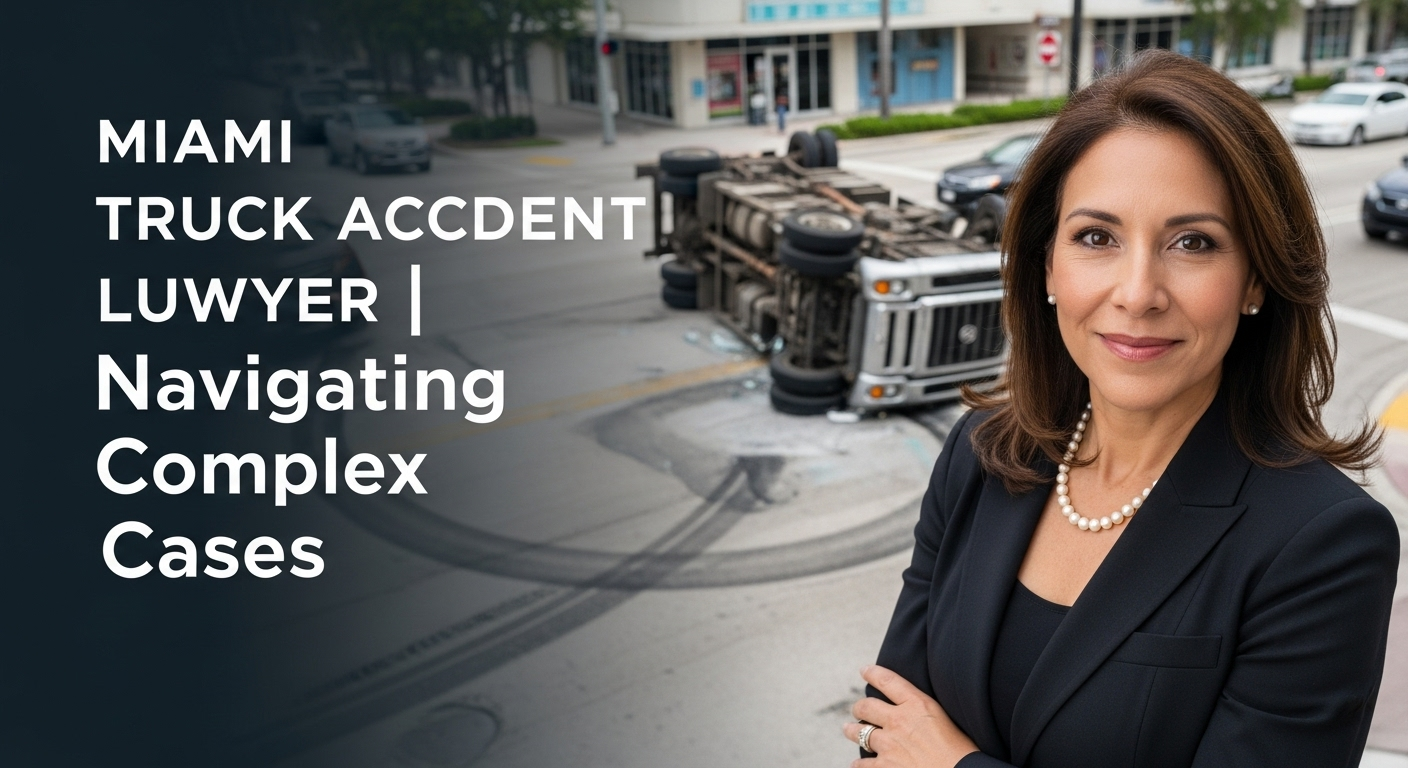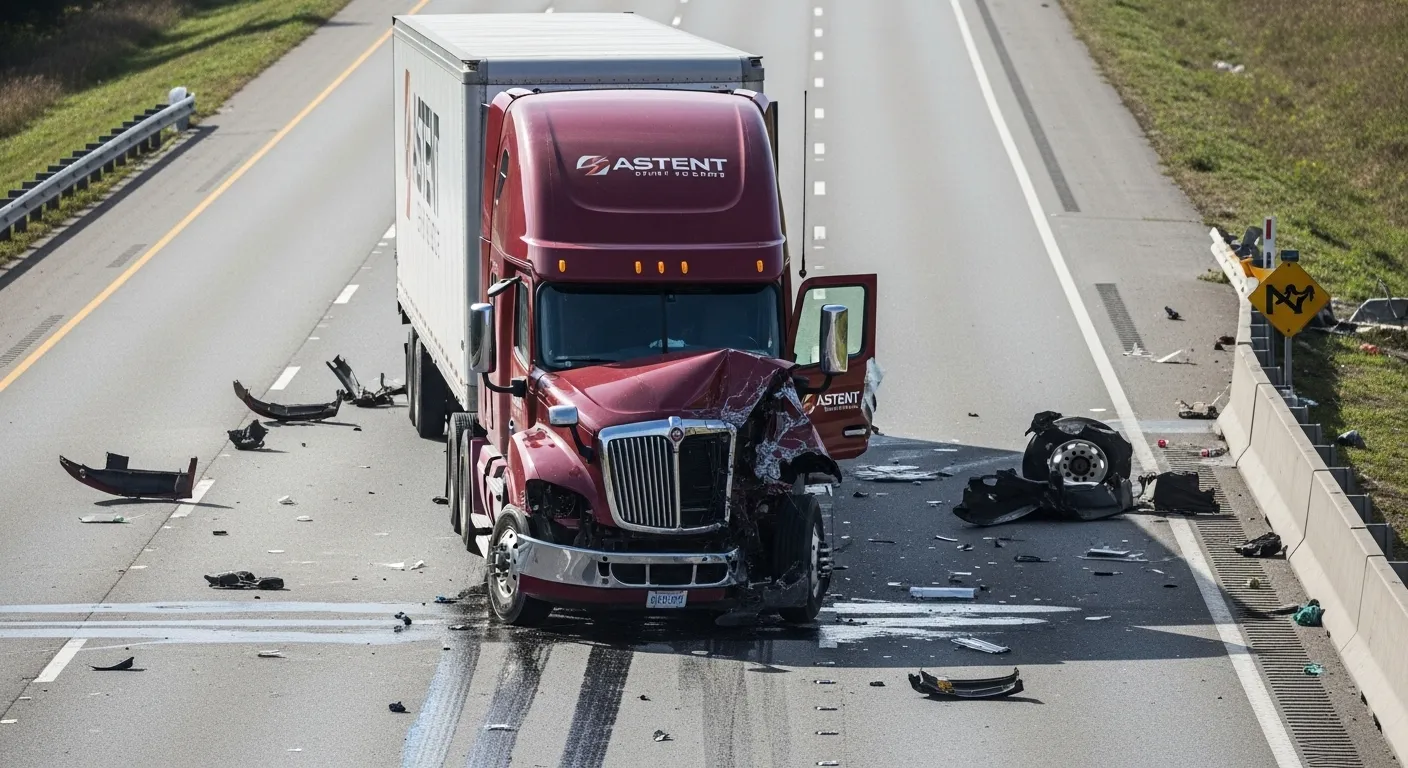A Guide to Florida Truck Accident Claims: Laws & Critical Evidence

An accident involving a large commercial truck, such as a semi-truck, 18-wheeler, or big rig, is not just a bigger car crash. It is a fundamentally different and far more complex legal event, with devastating consequences for those in smaller passenger vehicles.
The sheer size and weight of these vehicles mean injuries are often catastrophic. Furthermore, the case itself involves navigating a maze of federal regulations, powerful corporate defendants, and multiple potentially liable parties. Understanding the unique nature of truck accident claims is the first, most crucial step in fighting for the justice and compensation you deserve.
Why Truck Accident Claims Are Not Car Accident Claims
Treating a collision with a commercial truck like a standard car wreck is a grave mistake that can cost you everything. The legal and factual landscape is vastly more complicated.
Here are the key differences that demand specialized legal expertise:
- Severity of Injuries: A fully loaded commercial truck can weigh up to 80,000 pounds, compared to the average car's 4,000 pounds. This immense disparity in force results in life-altering injuries, including traumatic brain injuries, spinal cord paralysis, amputations, and fatalities.
- Complex Federal Regulations: The trucking industry is governed by a dense set of rules from the Federal Motor Carrier Safety Administration (FMCSA). These rules dictate everything from how many hours a driver can be on the road to maintenance schedules and cargo loading procedures. A violation of these rules is powerful evidence of negligence.
- Multiple Liable Parties: In a car crash, you typically have one at-fault driver. In a truck accident, liability can extend to a web of corporations, all of whom will point fingers at each other to avoid responsibility.
- Aggressive Corporate Response: Large trucking and insurance companies have rapid-response teams of investigators and lawyers. They often arrive at the crash scene within hours to gather evidence, talk to witnesses, and build a defense—all before you have even left the hospital.
Uncovering All Liable Parties: Looking Beyond the Driver
A critical error is assuming the truck driver is the only person responsible. A successful truck accident claim requires a deep investigation to identify every party whose negligence contributed to the crash. This is vital because the corporations often have much larger insurance policies than individual drivers.
Potential defendants include:
- The Trucking Company (Motor Carrier): The company can be held liable for its own negligence, such as negligent hiring (hiring a driver with a poor safety record), inadequate training, or pressuring drivers to violate hours-of-service rules to meet deadlines.
- The Freight Owner or Shipper: If the cargo was improperly loaded, unbalanced, or overloaded beyond legal weight limits, the company that owned and loaded the freight can be held partially or fully liable for the crash.
- Maintenance and Repair Companies: If a third-party company was responsible for truck maintenance and a mechanical failure (like brake failure) caused the accident, that company can be a defendant.
- The Truck or Parts Manufacturer: If a defect in the truck itself or one of its components (e.g., tires, steering, brakes) led to the crash, a product liability claim may be brought against the manufacturer.
- The Truck Driver: Of course, the driver is often liable for their direct actions, such as speeding, distracted driving, or driving under the influence.

The "Black Box" and Other Crucial Evidence
Proving negligence in truck accident claims relies on securing and analyzing evidence that simply doesn't exist in typical car crashes.
Your legal team must immediately move to obtain:
- The Electronic Logging Device (ELD) or "Black Box": This device records a wealth of data, including the truck's speed, braking activity, steering inputs, and other crucial information from the moments leading up to the crash.
- Driver's Hours of Service (HOS) Logs: These logs show whether the driver violated federal rules designed to prevent drowsy driving. Driver fatigue is a leading cause of truck accidents.
- Maintenance and Inspection Records: These documents can reveal a pattern of neglected maintenance on critical systems like brakes, tires, and lights.
- The Driver's Qualification File: This includes the driver's employment history, driving record, training certificates, and medical history, which can reveal a pattern of unsafe behavior or medical unfitness.
- Post-Accident Toxicology Reports: Federal law requires drug and alcohol testing for truck drivers after any serious accident.
Frequently Asked Questions
Who can be held liable in a truck accident case besides the driver?
In a truck accident claim in Florida, multiple parties can be held liable. This includes the trucking company (for negligent hiring or maintenance), the cargo shipper (for improper loading), third-party maintenance companies, and even the truck's manufacturer if a defect caused the crash. A thorough investigation is key to identifying all responsible parties.
What is a 'spoliation letter' and why is it important in a truck accident case?
A spoliation letter is a formal legal notice sent to the trucking company demanding that they preserve all crucial evidence related to the accident. This includes the truck's 'black box' data, driver logs, and maintenance records. It is critical to send this letter immediately to prevent the evidence from being lost or destroyed, which can happen quickly.
Don't Face the Trucking Industry's Lawyers Alone.
Truck accident claims are a high-stakes battle against powerful corporations. You need a law firm with the resources, experience, and tenacity to stand up to corporate legal teams. Our Miami truck accident attorneys will fight for the maximum compensation your catastrophic injuries demand.
Get Your Free, In-Depth Case Analysis Today →We Have the Experience to Win Complex Trucking Cases.